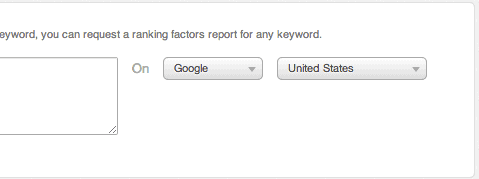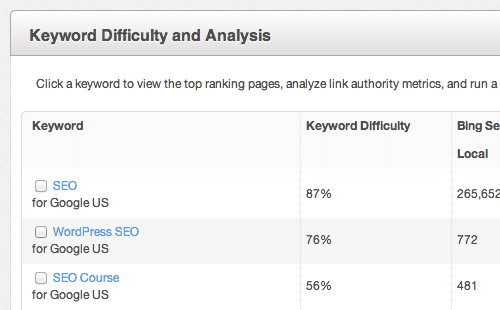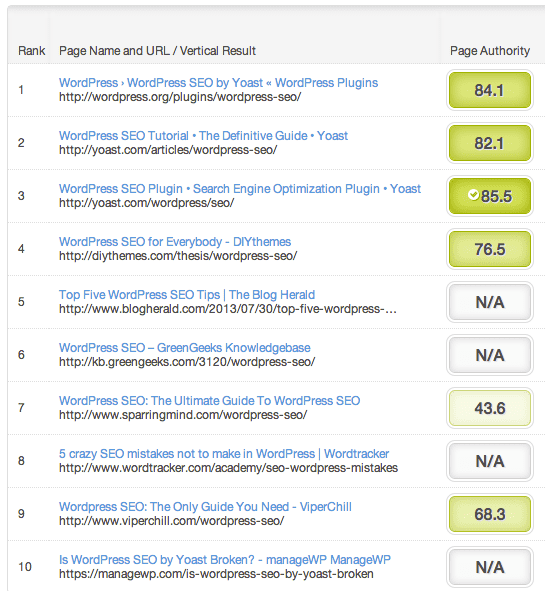
Knowing how to do keyword research is vital. You need to know what keywords you should optimize your site for to be able to drive traffic from search engines. Otherwise your efforts won’t yield any good results. And that’s just because people may not use the keyword you optimized your site for. If it’s the case, people just won’t find you in Google. So, it’s not a good place for guesswork. You may want to decide to rank your site for a keyword that has lots of searches per month. The logic is as follows. Since there’s lots of searches, there should be enough customers for all. Problem is, it’s not exactly how it works.
Victory in Terms of SEO
If you try to outrank really quality sites that rank for your keyword (such as “short-term rentals in Melbourne“, you may need to spend a fortune or a lifetime to beat them. So, before you start your SEO campaign, you need to make sure that you understand what it’ll take to beat your competitors. In a nutshell, you need to get all the links that your competitors have and … a few more. That’s how you can beat your competition. In case your competitors have lots of links from other sites (backlinks) you need to be realistic if you’re able to build that amount of quality links in order to win over.
What to Use Moz’ Keyword Difficulty Tool for
There are a whole lot of tools that allow you to see how strong your competition is. To get a general idea of how hard it’ll be to compete for a specific keyword, you need to measure your keyword difficulty. Though there are a bunch of keyword difficulty tools out there, the keyword tool that comes with a Moz account is best-in-class. So, you may want to sign up to use the tool. Thing is, you can see how strong your competition is in a blink of an eye thanks to the keyword difficulty tool.

You just need to login to your Moz account and open the Keyword Difficulty tool interface. That done, just type in the keywords whose keyword difficulty you’d like to measure. Say,
- SEO
- WordPress SEO
- SEO Course
Now, select your search engine and country. That done, just hit the Check Difficulty button and you should see your results in no time.

As you can see, these keywords have different difficulty levels. As a rule of thumb, the more specific your keyword the better. Since SEO Course has the lowest percentage (56%), it’s the easiest keyword to tackle. You’ll need to invest the least efforts and funds (if any) to rank #1 for this keyword. WordPress SEO is the second easiest keyword and SEO is the most difficult one.

Now, you need to take a look at the amount of traffic that you’ll be able to generate if your rank #1. Once your site is at the top of Google for your keyword, about 50% of all the people who search for that keyword will click your link in Google and land on your site. But how many people exactly..?
You can use Keyword Planner to obtain that sort of info. Having that done, you’ll see the following average monthly searches that each of the keywords can potentially yield:

How to Count Potential Traffic
Though SEO course is the easiest keyword to rank high for, it does not really have enough traffic. So, you need to take a look at WordPress SEO instead. It’s relatively easy to rank high for it and it has a decent amount of average monthly traffic. Since it has 14,800 monthly searches, you’ll get about 7400 per month (50% of 14,800). That’s around 247 visitors a day and it’s enough to monetize your site.
Face Your Enemies
You can see what kind of sites you’ll have to compete with. Go back your Moz Keyword Difficulty tool and click the WordPress SEO keyword. Scroll down and you’ll see a list of your 10 competitors. Take a looksie at their SEO metrics you’ll have to deal with.
- Page Authority
- Root Domains Linking to the Page
- Domain Authority
- Root Domains Linking to the Root Domain
The ten from the bottom are kinda easy to win over, but the last four are REALLY hard to compete with.

Conclusion
So, before you start investing both time and money in your SEO campaign, make sure that you’re ready to take the plunge and do what it takes to rank #1 for your keyword. Long story short, you need to find the balance between the difficulty of your keyword and the amount of traffic you’ll be able to generate with it.
Did you happen to use alternative keyword difficulty tools available out there? How did they perform if so? And one more thing. Do you have other tips on how to do keyword research?
Useful Links
Advanced SEO’s Guide to Keyword Research
7 actionable strategies to identify every single business competitor
4-Step Keyword Research Guide, or how to create a dream list of keywords
The One-Hour Guide to SEO, Part 2: Keyword Research – Whiteboard Friday
Keyword Research Tutorial: From Start to Finish (2019) – Ahrefs.com
How to Rank Higher on Google (6 Easy Steps)
How to Do Keyword Research for a NEW Website (2019 Tutorial)
Find Ranking Keywords, Uncover Opportunities, Check Rankings, & More: 5 Workflows for Easier Keyword Research
The Keyword Research Master Guide
A Must-have Keyword Research Process for Winning SEO – Whiteboard Friday
AlsoAsked.com
6 Keyword Research Tips to Find Untapped Opportunities
50+ Modifiers to Boost Your SEO & Drive Sales
Extract N-Grams from your keyword list or content.
How Reliable are Keyword Difficulty scores?
50+ Modifiers to Boost Your SEO & Drive Sales
Understanding & Fulfilling Search Intent – Whiteboard Friday
Ecommerce SEO: A Simple (But Complete) Guide
A-Z Guide to Keyword Difficulty
How To Master Keyword Research
SEO Guide to search intent (a.k.a. keyword intent)
Announcing: The Keyword Research Master Guide
How to Do Keyword Research for SEO
Seed Keywords: What Are They & 7 Actionable Ways to Find Them




